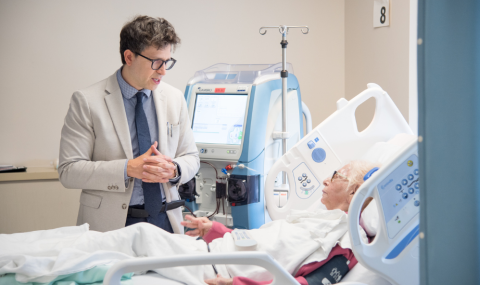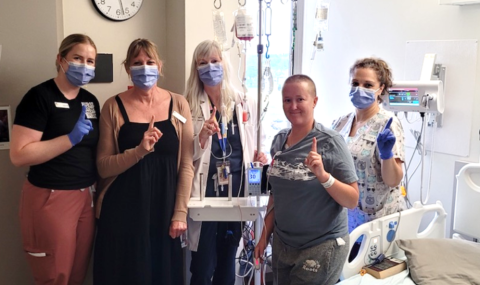Patients who are critically ill often have more than one medical problem. They may develop a problem with their heart or kidneys, or require a surgical procedure. To provide the best possible care, the CCTC Consultant will often ask physicians with expertise in other areas of medicine to assess the patient and provide additional medical recommendations or suggestions.The CCTC Consultant acts as a coordinator, ensuring that the recommendations from all of the Specialists and Attending physicians are incorporated into one plan of care.
Examples of Medical Specialists who may participate in the care of patients in CCTC:
Surgeon: A surgeon is a physician trained to perform operations. There are many different subspecialties of surgery. In Canada, surgeons receive certification from the Royal College of Surgeons. They carry the designation FRCSC (Royal College of Surgeons in Canada).
Examples of Surgical Specialties:
General Surgeon: Performs a variety of operations and procedures. Operations in involving the abdomen and gastrointestinal tract are usually performed by a general surgeon. General surgeons often have specific areas of subspecialization such as the management of severe trauma or the performance of specific types of procedures and operations.
Neurosurgeon: Performs operations on the brain, nerves or spinal cord.
Obstetrician or Gynecologist: An Obstetrician and Gynecologist is a surgeon who provides care to women related to their reproductive system. This can include care related to becoming pregnant, being pregnant or the birth of a baby. They also perform operations on the female reproductive system.
Orthopedic Surgeon: Performs operations to repair damaged or broken bones.
Otolaryngology Surgeon: An otolaryngologist (also called ENT or head and neck surgeon) performs operations on the ear, nose or throat.
Plastic Surgeon: Performs surgery to repair facial, complex limb or serious skin injuries (including burns).
Thoracic Surgeon: Performs operations on the lungs or in the chest (called thorax).
Vascular Surgeon: Performs operations on the blood vessels (vascular refers to blood vessels). This includes aortic aneurysm surgery.
Internist: An internist is a physician who has received specialty education in the care of medical problems (problems that are treated without surgery).
In Canada, physicians specializing in internal medicine receive certification from the Royal College of Physicians. They carry the designation FRCPC (Royal College of Physicians in Canada).
General Internist: Cares for patients with a variety of medical conditions.
Cardiologist: A cardiologist is a heart doctor. They specialize in heart and blood pressure disorders.
Infectious Disease Specialist: An Infectious Disease Specialist has additional education in the care of patients with serious infections.
Nephrologist: A nephrologist is a kidney doctor. They are responsible for managing kidney dialysis treatments.
Neurologist: A neurologist is a physician who specializes in the care of the brain and nervous system.
Oncologist: An oncologist is a physician who specializes in cancer care.
Respirologist: A respirologist is lung doctor. Asthma or chronic lung disease are examples of common disorders managed by these specialists.
To become a specialist in internal medicine or surgery, physicians study for an additional 4-5 years after becoming doctors. All Medical Specialist are members of the Faculty of Medicine at Schulich School of Medicine and Dentistry at Western University.


